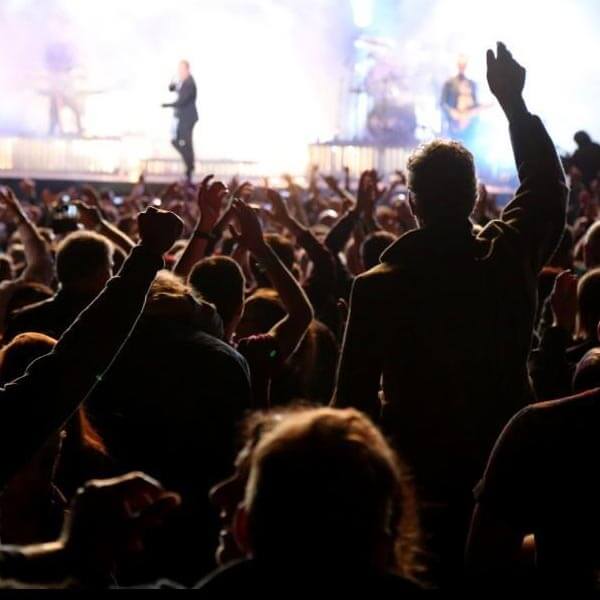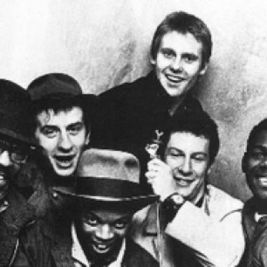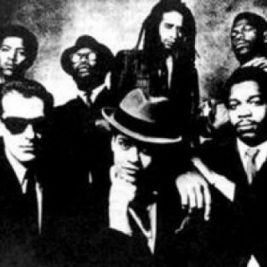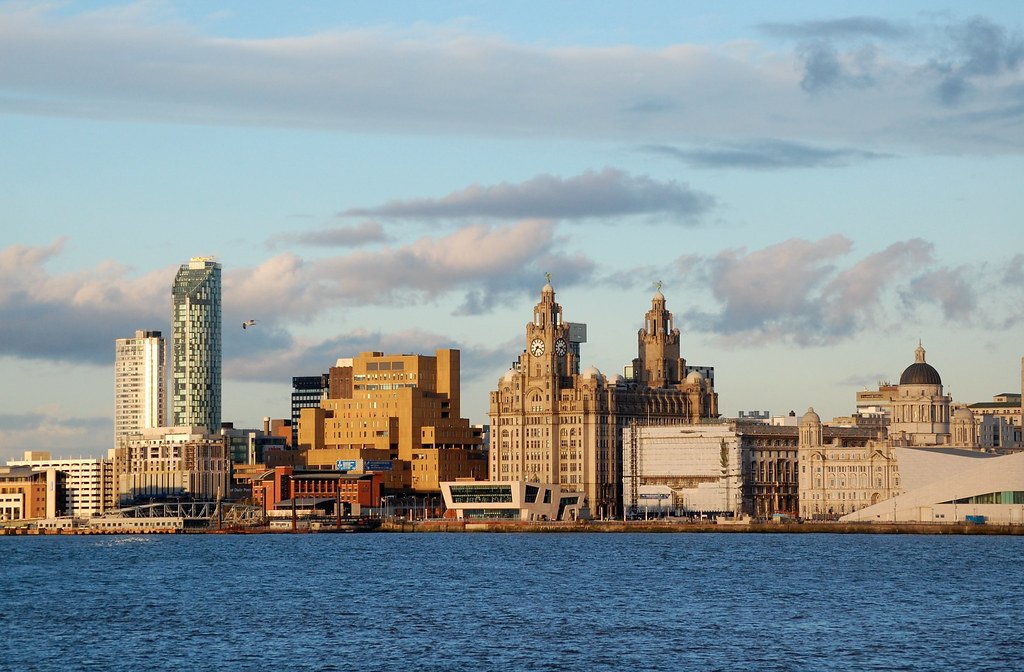
Pauline Black interview: race, female empowerment and the 2 Tone life
Ahead of a slew of shows and headlining performance at Positive Vibration, we caught up with inspirational frontwoman of The Selecter, Pauline Black, to talk about racism, sexism and brushing shoulders with Blondie.
Lorna Gray
Last updated: 26th Oct 2017
Image: Pauline Black
The Selecter were undoubtedly one of the biggest bands of the ska genre and 2 Tone label. Having only been together for two months, the band found themselves touring with other greats from the genre in the shape of The Specials and Madness. Fast forward a few more months and their first single, 'On My Radio' stormed to a top ten position in the UK charts, gaining the collective a spot on Top of the Pops and as well as a spot on the 2 Tone map forever.
As one of the sole females within the genre, frontwoman Pauline Black to this day takes the title of one of the most influential women within music. We caught up with her ahead of her UK tour with fellow ska favourites The Beat and festival headline at Liverpool's Positive Vibration festival to discuss being a successful black woman in a racist and sexist societal Britain.
Having only been together for about two months The Selecter were touring with Madness and The Specials, was this something you ever expected from your musical endeavour?
Well, I didn't really expect anything! At the time I didn't particularly know - I mean everybody now knows of The Specials and Madness - but to me, they were just another band, if you know what I mean. We knew some of the members of The Specials but no, you don't really expect the first band you're ever in, to sort of end up with a top ten hit and you're on a 2 Tone tour. The other two bands also have top ten hits. So yeah, it was a surprise!
Looking back is there a particular career highlight for you?
A highlight? Well, probably being on Top of the Pops all those years ago, it's not something that you ever expect to happen and it was absolutely great. Out first single 'On My Radio' went top ten, so you can't really ask for much better than that I guess.
Find The Selecter tickets
Why did the Selecter split initially in 82? And what made you reform?
We split in 1982 because the usual sad thing of musical differences - which in our case was actually true. People went their separate ways and we reformed again ten years later with different personnel. Well not completely, I'd always been a constant and the other singer Arthur 'Gaps' Hendrickson has always been a constant pretty much too.
So here we are, 37 years later and we're still gigging and we can still sell out Shephard's Bush Empire with The Beat, and The Roundhouse in London. So we feel like the music was produced over all that time and it's had some resonance with the people who listened to it.
Speaking of The Beat, can you tell me about the Selector’s relationship with them? You've been close since the beginning and you're about to tour with them again.
Yeah, in the beginning, it was us who discovered The Beat really. They were from Birmingham and we're from Coventry. We were playing a gig in the Dingbat Hall as it was those days in Birmingham. John Peel happened to be doing the Djing that night. They went on first and we immediately twigged that what they had was a really individual sound of their own and was obviously right for the 2 Tone label. Peel thought pretty much the same thing too.
It was a good night for The Beat, that initial night as it were. I think I'd met Ranking Roger maybe a few weeks previously to that, it was just that we'd both arrived on Jeremy Dammers - the guy in the Specials, he kind of started the whole 2Tone label thing - we arrived at his door simultaneously and we were trying to figure out which one of us would be brave enough to ring the doorbell.
The 2 Tone label was male dominated at its peak, with you being one of the sole successful female artists of the genre, was that daunting to you at all?
You don't really think about it at the time, the whole of the music industry in those days was male dominated, so you didn't really think it was going to be any different. There were of course The Bodysnatchers, led by Rhoda Dakar, and they came out on tour with us. There was another band called The Swinging Cats, at the time we knew them they had a female lead singer as well.
So it wasn't like there was an abundance of women around - though we had a female manager, Juliet, she's now married to Billy Bragg, we still keep in touch. There were other women around but not necessarily either in the band or in positions which were considered important in those days. The lady who sold the merchandising or something like that was invariably a woman. There were very few sound engineers or roadies that were female, and if there were, then, of course, they were remarked upon.
Find The Selecter tickets
There’s an image of you from 1980 with the likes of Debbie Harry, Poly Styrene and Viv Albertine taken by Chris Stein, I imagine there’s a story to tell behind this picture of female punk icons?
Yes! Blondie and ourselves shared a record company a the time, called Chrysalis. They were responsible for putting out the 2 Tone label. I believe Blondie wanted The Specials to do the backing on 'Tide Is High', but they said no so they ended up doing it themselves. We would bump into them now and again, either at a party or some sort of launch.
We did two sports shows with them at Hammersmith Odeon. I think that it was part of Debbie Harry's press campaign to get various ladies together all in one room to stick them on the cover of the NME - that's what happened basically! We all ended up in the same room; myself, Poly Styrene, Chrissie Hynde, Viv Albertine from The Slits and Siouxsie Sioux. We all sat there and got a bit tiddly waiting for Debbie Harry to turn up - which obviously she did in the end! So, we did those photos.
They've absolutely gone down in history...
Well yeah, I mean it just goes to show doesn't it? Five women on the cover of a musical magazine at the time was considered "wow, that's amazing". It probably still is today, which goes to show to you how far we have come. I thought it was at least a pretty good bash at it and it's a real snapshot of the time.
There were obviously people who are missing from that. I think Kate Bush - I think she'd been asked but didn't come - or something like that, but if she hadn't been asked then whoever organised it ought to have thought very carefully about that. There were other women around who should have been there, Joan Armatrading - those kinds of women, who were out there and doing it for themselves.

Find The Selecter tickets
The punk attitude went hand in hand with 2 Tone music, and it’s fair to say that your personal attitude really embodied that - what came first, the music or your bold approaches?
Probably the music, I got involved with the music in a weird way. I just turned up at an audition after meeting them and they wanted to form a band. I had a song which features on the 1980 album Too Much Pressure called 'They Make Me Mad' and I sang it at the audition and nobody asked me to leave so to me that meant I was in. It was never really spoken about.
The next thing I knew, we were doing shows of our own or supporting Specials out on tour. That all happened quite quickly. I would say that the music happened first. Then it was like investigating what women normally wore with that kind of music, my style helped promote my attitude.
Looking around it wasn't anything that I particularly wanted to wear, I just made it up as I went along. I looked at rude boys because there were plenty of photos around of Bob Marley in his rude boy creation before he became a rasta and grew his locks and stuff.
It seemed to be a black suit and trousers that seemed to look like they'd had a row with your loafers, with a white sock in between. Always with a trilby hat or a pork pie hat. I didn't really like pork pie hats, I thought they were a bit mannish so I went for a softer trilby look.
I put it together in that sort of way. I called myself a rude girl - I mean, I didn't but other people did - there wasn't any until then, there had been plenty of rude girls but not rude girls in the sense of anyone having anything to do with Jamaica.
By wearing suits you rejected the typical view of femininity in an industry where females were generally ogled at. Was this presentation of yourself a conscious decision or just what you felt comfortable with?
Both really, it was a conscious decision in the way that I looked around and other black females at the time would have been people like Donna Summer, the ladies in Chic - the whole kind of disco queen thing - you know, even Tina Turner. All of those ladies I love, but I just didn't want to look like them. Disco pants don't really look good on anyone I don't think. Tina Turner obviously had the chutzpah to carry off a very short, shimmy skirt and all those kind of things, but I didn't really feel like being on a stage dressed in that manner.
I just wanted people to listen to the songs. The way that 2 Tone had been explained to me was that it had been an anti-racist thing and an anti-sexist thing. Being one of the only females around, I went with the anti-sexist thing. I mean Rhoda - she was very comfortable wearing a short skirt and a big beehive and things like that, I didn't feel the same so I just went the other way.
Find The Selecter tickets
The 2 Tone and Ska genres were also predominantly white. Did you ever feel like white bands were appropriating a sound that originated from your culture?
When you say predominately white, what do you mean? The scene?
The scene in general, a lot of your fans were skinheads or were mostly white.
No, not a lot, most of our fans were just young people like the people that go to gigs today. There was a skinhead fraternity that came, but you wouldn't turn up to a gig of like 1,000 people and 800 of them would be skinheads.
From what I'd read about the scene, that's completely the picture that was painted...
No, not at all. You might turn up and find that there was a crowd of one hundred maybe 200 people, but mainly it was just young people who were just into the scene and into the thinking behind it. I think what happened was the media - especially people like The Sun and the tabloids at the time - said that skinheads were invariably in their eyes racist and here they were watching black, or mixed race bands playing. They must have thought they could make something out of it.
Usually, there were a couple of gigs where trouble kicked off, but it would be like ten people within a crowd kicking off this trouble - with other's following. So there might be a punch up between the skinheads and the mods because everybody was tribal in those days anyway. You'd have rudeboys, you'd have mods, you'd have skinheads and you'd have punks as well, they were fairly well renowned for kicking off at various times.
It was something at the time I considered normal. I mean, mods and rockers were kicking off every bank holiday or something but because you put race into the mix, at a time when Britain itself was deemed pretty damn racist, that made a good story and it made a good headline and all those kind of things.
So those skinheads had traditionally always been into Jamaican music were all tarred with the same brush, like, "Oh they all must be racist" but that wasn't true. Some were, but a much smaller percentage, I think, then what was ever portrayed by any of the tabloids.
I read that while you were performing many members of the crowd did a Nazi salute, how did you respond to those attitudes?
How we used to deal with it, was we would stop the music, gently ask them why they were doing it - which would make them a bit shamefaced because the majority of the people around them, which could be anything from 1,000 to 15,000 people, would all be staring at them and they'd have to explain themselves. If they persisted, then we would stop the music and we would go off and usually, someone would send an envoy, to tell us that they weren't all like that.
We were in a good position to do that, we had six black members in our band - only one white member. So it was a big deal when they did that to us, so you just deal with it. As a black person in this country - even these days - you walk down the road or into a shop and you're possibly going to be treated differently than from a white person. You could find racism anywhere in those days, you didn't need to go to a gig to find it.
You were brought up by white parents, and by changing your surname to Black as a nod to your identity you embraced your roots, did this have any influence on your music?
Yeah, well, I think that it probably did. That was definitely a conscious decision. My parents were... how do I say it? They would have been in their sixties when I did that, they weren't really happy that their daughter was playing in a band that had black people in it. They were racist themselves, they were casually racist in the same way that everybody was in this country. They mistrusted anyone from any of the African countries or from the West Indies.
I'm not going to say that that's particularly different today in a certain age group. It wasn't quite the career path they had seen for their precious adopted daughter and me being a bit rebellious in those days I just decided to change my name to Black (she laughs). It meant they had to call me Black then. It was considered impolite to call anyone black in those days, in my mother's generation. In that circle, they preferred the term "coloured" which could obviously mean anything.
From the age of fifteen I'd been deeply into embracing the whole ethic of black America. James Brown, he made a named nation and I wanted to know all I could about the civil rights movement and black power. It was a conscious decision because then my mother would see my name in lights as it were and it would be "BLACK". Call me contrary!
It's really inspirational that you did that.
Sometimes you just have to address the elephant in the room, don't you? From a very early age, I'd always seen the elephant in the room being the only black person in school and being the only black kid in my family.
I was introduced to everybody as "the adopted daughter" just in case anyone got the wrong idea and thought my mother had slept with a black man - god help her! It was a little bit like that, so you learn from a very early age - well, you're either going to be pushed under by that or you're going to rebel against it, and I chose the rebellious route.
Find The Selecter tickets
Was there a particular turning point in your life that made you adopt this nonconformist attitude?
I would say when I was about fifteen and we used to get nightly reports on the news of what was happening in the civil rights movement. I only ever saw black people being abused, with water cannons used against them, stood up against a wall, or removed from lunch counters because they weren't allowed to sit at the same lunch counters as white people.
Then there's Miscegenation - it was completely banned in a lot of the Southern states of America if a black man and a white woman or a white woman and black man decided that they were in love and wanted to live together. It was actually against the law.
Similarly, you had problems in South Africa, a lot of white British people went to South Africa and emigrated there and they emigrated to Australia as well. They were quite hideous to the people that they found there, whether they be Aborigines or Maoris or the indigenous population of South Africa at the time. They were seen as second class citizens.
I just felt very deeply, during my teenage years, that this was wrong and "what the hell are we going to do about it?" That's where the attitude comes from.
You can watch Pauline Black live as The Selecter head out on a co-headline tour with The Beat as well as making various festival appearances.
You can get The Selecter tickets via the boxes below.
Manchester - O2 Ritz, Friday 13th October
Buy tickets:
Bournemouth, O2 Academy, Saturday 4th November
Incorrect date listed
Glasgow - O2 ABC, Friday 17th November
Buy tickets:
Liverpool - The Olympia, Saturday 23rd September
Buy tickets:
Read more news































